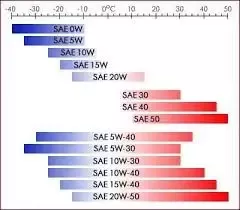What are the Symptoms of Bad Distributor Timing? A properly functioning distributor is crucial for the smooth operation of an engine. The distributor’s main role is to distribute high voltage from the ignition coil to the spark plugs in the correct firing order. However, if the distributor timing is off, it can lead to a host of problems that can affect the performance of your vehicle. In this article, we will explore the symptoms of bad distributor timing and how to identify and address them.
1. Engine Misfires and Hiccups:
One of the most common symptoms of bad distributor timing is engine misfires and hiccups. Misfires occur when the spark plugs do not fire at the right time or in the correct order. This can cause the engine to stumble, stutter, or emit an irregular rhythm. It disrupts the fluidity of the engine’s performance, similar to the misplaced steps of a dancer. If you notice your engine running rough or experiencing intermittent misfires, it could be a sign of distributor timing trouble.
2. Decreased Engine Performance:
When the distributor timing is off, it can lead to a decrease in engine performance. The engine may feel sluggish, lacking power, or not responding as it should. This can be especially noticeable during acceleration or when climbing steep hills. The engine may struggle to reach higher RPMs or feel like it’s working harder than usual. If you experience a significant decrease in engine performance, it’s worth checking the distributor timing.
3. Difficult Starting:
Improper distributor timing can also make it difficult to start your vehicle. If the timing is too advanced or too retarded, it can affect the ignition process, leading to hard starting. You may have to crank the engine for longer periods or make multiple attempts before it finally starts. This can be frustrating and inconvenient, especially when you’re in a hurry. If you notice a consistent difficulty in starting your vehicle, it’s worth investigating the distributor timing.
4. Engine Knocking or Pinging:
Another symptom of bad distributor timing is engine knocking or pinging. When the timing is off, the air-fuel mixture may not ignite at the optimal time, causing premature combustion. This can result in a knocking or pinging sound coming from the engine. Ignition timing that is too advanced can lead to detonation, potentially causing engine damage. If you hear any unusual sounds while the engine is running, it’s essential to have the distributor timing checked.
5. Decreased Fuel Economy:
Bad distributor timing can also impact fuel efficiency. When the timing is off, the engine may not be operating at its most efficient level. This can lead to increased fuel consumption and decreased fuel economy. If you notice a sudden drop in your vehicle’s fuel efficiency, it’s worth considering the distributor timing as a possible cause.
6. Overheating:
Improper distributor timing can also contribute to engine overheating. When the timing is off, the engine may not be running as efficiently as it should. This can result in excessive heat buildup, leading to overheating. If you notice that your engine is running hotter than usual or consistently overheating, it’s important to have the distributor timing checked to rule out any timing-related issues.
Read More: What is the Life of a Timing Chain?
In conclusion, bad distributor timing can manifest in various symptoms that can impact the performance and reliability of your vehicle. If you experience any of the symptoms mentioned above, it’s crucial to have your distributor timing checked by a qualified mechanic. They will be able to diagnose the issue and make the necessary adjustments or repairs to ensure proper distributor timing. Remember, addressing distributor timing issues promptly can help prevent further damage to your engine and improve the overall performance and efficiency of your vehicle.


